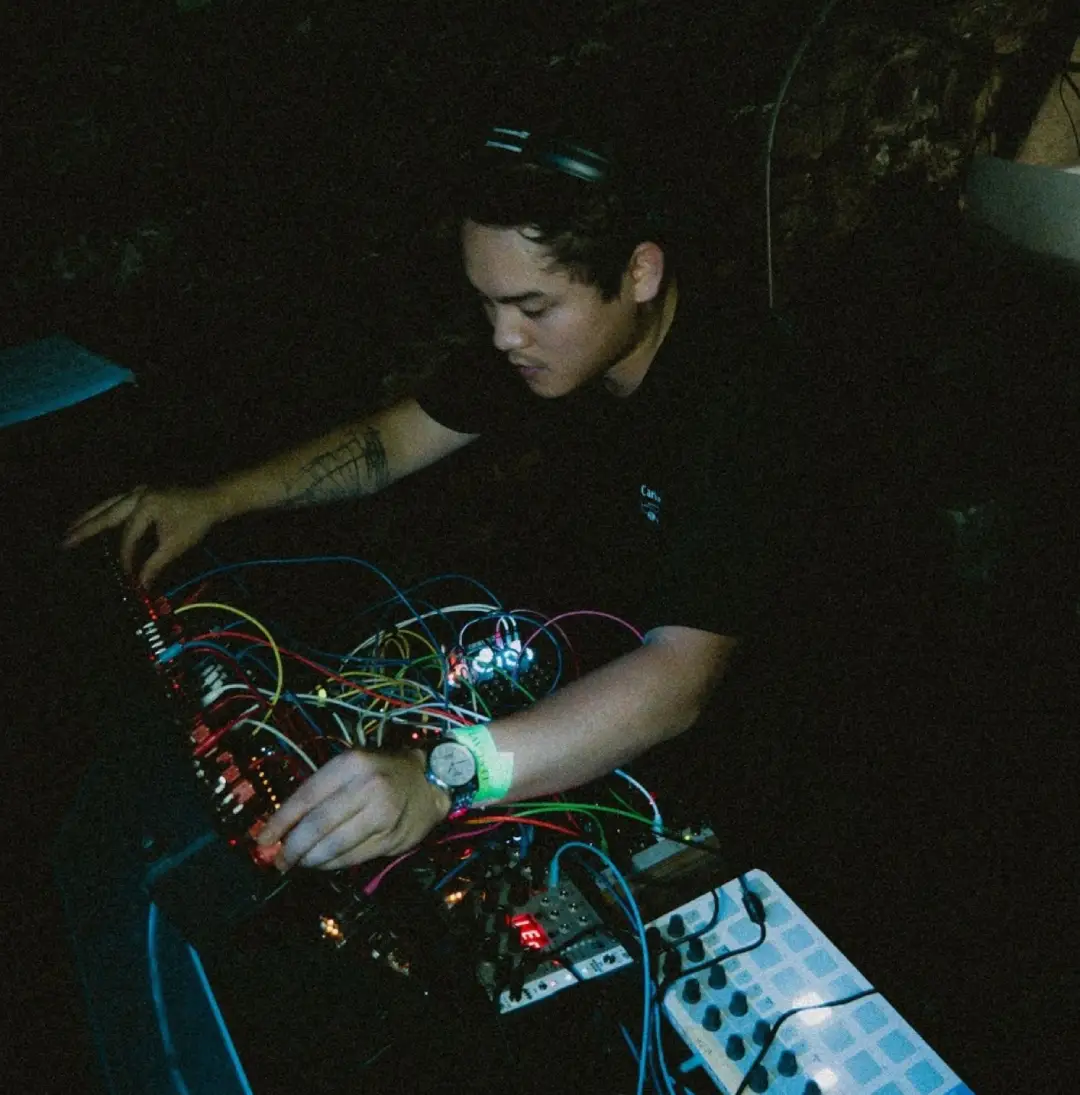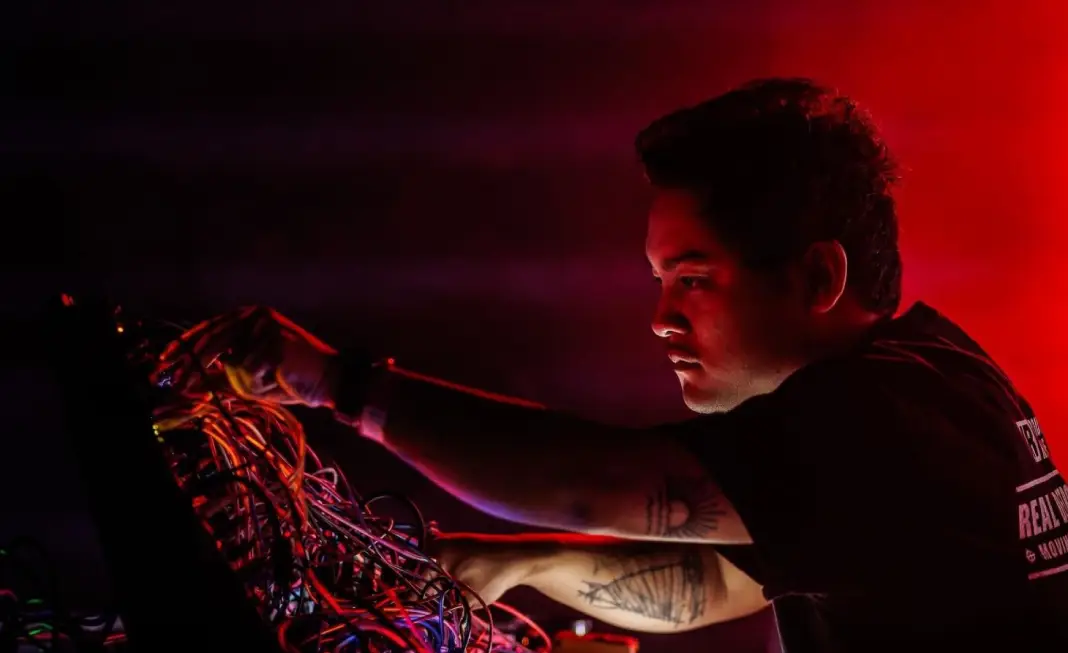LIVE
SPRING ROLLS
How long ago have you started your artistic career?
I started my proper experience with music very young. Thanks to my parents, I started to learn how to play guitar when I was around 10. My family influenced me a lot with various styles during my youth, making me listen to Rock, French variety, Jazz, Classical, Electronic Music and many more.
In March of 2017, I created a Facebook’s page called « Spring Rolls Music », which I used to share only music I digged on Youtube on channels as Hate, Prisoneer. Few months later, I decided to learn the art of djing. My friends told me it could be a great way to share my music tastes with people. I decided to rename my page « Spring Rolls » to use it as an artist page.
I had the opportunity to play at a few events as a dj, but I was quite frustrated : I needed to create my own sound, to be able to modify the sound I play. I bought my very first drum machine, a TR09 from Roland, and mix it with my dj set : at this moment I discovered a new world to explore, to finally find artistic satisfaction. Between 2017 and 2018, I bought many different drum machines, synths, fx, and mixers to explore them, and learn more about music’s production. I recorded and played my first live sets in 2018.
At the end of 2018, I decided to dive into the modular system’s world, to explore more and more. It was the tool I was looking for to understand sound synthesis. Since this year I keep working on it, and still learning new things.

Why did you choose to do live performances over other formats?
In my case, that’s the best way to make a sound alive. You can shape your own sound, make it evolve during 1 or 2 hours, make the crowd dive into your universe. It’s a real connection between the artist, his gear and all dancers.
What is the process for putting together a live performance, and how much time does it take?
First you have to find the right setup that you can play with, without any doubt. There’s no secret, you have to train a lot, be curious and find all sounds you can play, how to make transitions, drops, etc. You will have to accept that you won’t always find the sound that you had in mind. Fails and accidents can be a nice inspiration.
In my case, it took me some time to buy the right modules to build my modular setup. At the moment, it’s like a “groovebox” : I have everything in my box, drums, synths, mixer, fx, with few external pedals and a Beatstep Pro as a sequencer. Like in my daily job, architect, the main rule I follow is “Less is more” : I focus only on the setup that I already have. Sometimes I take some modules out of my case to try to play without them. Many times I find some better solutions.
I train almost one time per week, sometimes more when I have a gig planned. Since the beginning of 2023, I have recorded some stuff to share some tracks. It’s also a great way to improve my sound and discover new stuff for my live set.
I can’t properly quantify time about the live set’s preparation, I have been working on it for years now.

Who are your musical influences?
Definitely some artists like Ribé, Orbe, Lewis Fautzi, Conceptual, Adriana Lopez, Lakej, Mike Parker, Svreca, Norbak, Quelza, Reeko, Pyramidal Decode, Oscar Mulero, Kike Pravda, D-Leria, Desroi, Cia Rebeck, Carmelo Ponente and many more I respect a lot in our community.
What are your goals for your career in the upcoming years?
I don’t really have goals for my career. I follow all opportunities I receive and see where it goes. I keep a little dream in my mind, which is to travel and discover new countries, cultures and people, thanks to the music.
If you wanted to add something more, what would it be?
Just support your friends, every artist you like. Music is not a competition. Be yourself and don’t forget we all play music because it’s our common passion.